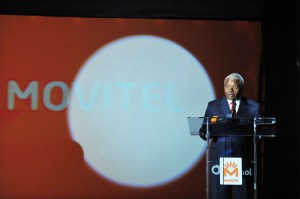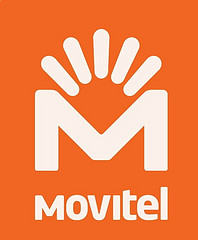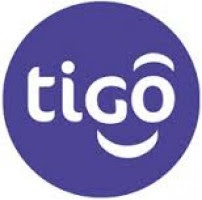MAPUTO, Mozambique, August 25, 2014/ — Arriving in Mozambique when the telecom infrastructure was very limited and only 35% of the population was accessible to the telecommunication services, Viettel – the Vietnamese leading telecommunications – has endorsed an initiative to popularize telecom services in rural and under-served areas in Mozambique. This initiative regards telecom provision as a commodity, which should be accessible regardless of geographical location or financial capacity. The company has invested in a network, service support and introduction of social programs to enable telecom services accessible to rural Mozambicans, as part of improving their overall lives and become its customers. Viettel aims at a sustainable social development and benefit both customers and the company by bringing mobile phones to every Mozambican and broadband Internet to every Mozambican family.
 Two years after the initiative was implemented, Movitel – the joint venture between Viettel and Mozambique’s SPI Company has built 2,800 2G/3G base stations and 25,000 km of fiber optical cables covering 100% of districts and highways, serving nearly 80% of the Mozambican population. In rural areas, by the end of 2013the company has increased its coverage area from 60% to 85% and doubled the number of covered people from 35% to 75%. In addition, to address the difficulties incurred due to limited transportation infrastructure, Movitel developed a diversified distribution channels comprising of 153 shops, 12,600 agents and points of sales and nearly 4,000 direct sales staffs to deliver door-to-door services in every village. Nearly 600,000 people in at least 5rural districts have been covered and served telecom services for the first time in life. Tariff plans have been tailored to be affordable and flexible for different groups. For instance, farmers were offered zero entrant fee with top up denomination of any value in addition to subsidizing handsets while the youth could enjoy services such as i-Muzik, Missed call alerts, Call me back, daily news, horoscopes, etc. Never before is it easier for Mozambican to use telecommunications services than it is now with Movitel.
Two years after the initiative was implemented, Movitel – the joint venture between Viettel and Mozambique’s SPI Company has built 2,800 2G/3G base stations and 25,000 km of fiber optical cables covering 100% of districts and highways, serving nearly 80% of the Mozambican population. In rural areas, by the end of 2013the company has increased its coverage area from 60% to 85% and doubled the number of covered people from 35% to 75%. In addition, to address the difficulties incurred due to limited transportation infrastructure, Movitel developed a diversified distribution channels comprising of 153 shops, 12,600 agents and points of sales and nearly 4,000 direct sales staffs to deliver door-to-door services in every village. Nearly 600,000 people in at least 5rural districts have been covered and served telecom services for the first time in life. Tariff plans have been tailored to be affordable and flexible for different groups. For instance, farmers were offered zero entrant fee with top up denomination of any value in addition to subsidizing handsets while the youth could enjoy services such as i-Muzik, Missed call alerts, Call me back, daily news, horoscopes, etc. Never before is it easier for Mozambican to use telecommunications services than it is now with Movitel.
 Moreover, Movitel is considerably contributing to changing the information communication landscape in Mozambique thanks to its strong network infrastructure. Movitel now accounts for 70% of the country’s fiber optical cable infrastructure and 50% of the mobile phone network infrastructure, bringing Mozambique among the top three nations in terms of fiber optical cabling infrastructure in Sub-Saharan Africa (along with South Africa and Nigeria). The country now has a strong and modern infrastructure through this, in addition to the latest DWDM technology and 20Gbps bandwidth. The infrastructure enables Mozambique’s telecommunication industry to implement the e-government and develop ICT applications in the education and healthcare sectors for socio-economic.
Moreover, Movitel is considerably contributing to changing the information communication landscape in Mozambique thanks to its strong network infrastructure. Movitel now accounts for 70% of the country’s fiber optical cable infrastructure and 50% of the mobile phone network infrastructure, bringing Mozambique among the top three nations in terms of fiber optical cabling infrastructure in Sub-Saharan Africa (along with South Africa and Nigeria). The country now has a strong and modern infrastructure through this, in addition to the latest DWDM technology and 20Gbps bandwidth. The infrastructure enables Mozambique’s telecommunication industry to implement the e-government and develop ICT applications in the education and healthcare sectors for socio-economic.
 Especially, considering investment in education as an investment for the future and the knowledge base of a country, Movitel has introduced “Internet connection to schools” program to supply free broadband Internet to 4,200 schools nationwide. Up to the end of 2013, 2,500 schools was connected with Internet, helping millions of teachers and students have access to the world’s sources of information for a better education. Besides, the company also supports Mozambican government to implement e-government program to bridge the digital gap between rural and urban areas.
Especially, considering investment in education as an investment for the future and the knowledge base of a country, Movitel has introduced “Internet connection to schools” program to supply free broadband Internet to 4,200 schools nationwide. Up to the end of 2013, 2,500 schools was connected with Internet, helping millions of teachers and students have access to the world’s sources of information for a better education. Besides, the company also supports Mozambican government to implement e-government program to bridge the digital gap between rural and urban areas.
Recently, Movitel, SA has become the only telecom operator in Africa in 3 consecutive years winning reputable prizes from prestigious international organizations by winning the Best Mobile Innovation Award – the most notable prize among the 18 others of the Mobile Innovations Awards. Formerly, it won the Rural Telecom Award of the AfricaCom Awards in 2012 and the Competitive Strategy Leadership award by The American Research and Consulting firm Frost and Sullivan in 2013. These awards are all a praise of the tireless effort of Movitel in enhancing the people’s lives and its contribution to the ICT development of Mozambique.





